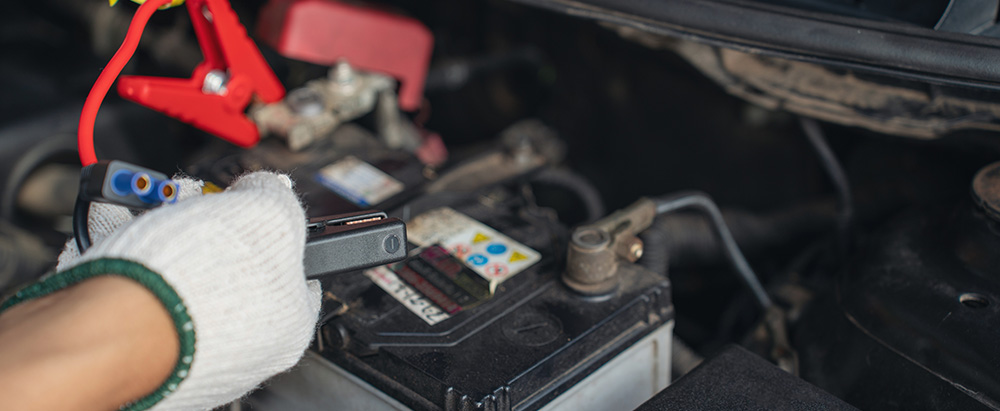Hyundai Motor America has announced a safety recall affecting a limited number of 2025 Hyundai Palisade vehicles due to a potential problem with the controller for the electric oil pump (EOP). The issue, which may cause an electrical short and increase the risk of a vehicle fire, is attributed to an insufficient seal on the EOP controller housing.
According to Hyundai, the problem was first identified in March 2025, when the company was notified of a potential issue involving the electric oil pump installed on a model year 2025 Palisade produced in Ulsan. An investigation revealed that a damaged spring in the tooling used during manufacturing may have compromised the hermetic sealing of the EOP controller housing, allowing moisture to accumulate on the printed circuit board and increasing the risk of electrical shorting.
The National Highway Traffic Safety Administration (NHTSA) was informed of the issue, and after reviewing the findings, Hyundai decided to conduct a safety recall of all affected model year 2025 Hyundai Palisade vehicles in the U.S. The recall aims to replace the EOP controller and associated wiring harness, if necessary, to prevent any potential fires.
Symptoms and Precautions
Drivers of affected vehicles may notice a burning or melting odor or an illumination of the Malfunction Indicator Light. While owners can continue driving their vehicles, Hyundai recommends parking them outside and away from structures until the recall remedy is completed as a precautionary measure.
Recall Remedy and Notification
Hyundai will notify all owners of the subject vehicles by first-class mail, instructing them to bring their vehicles to a Hyundai dealer for replacement of the EOP controller. The recall remedy is expected to begin on July 4, 2025. Owners can contact Hyundai’s customer service or visit the NHTSA website for more information on the recall.
The recall number assigned by Hyundai is 278, and the NHTSA campaign number is 25V-291. Affected owners are encouraged to follow the instructions provided in the notification letter to ensure their vehicle is repaired promptly and safely.
In conclusion, while the electric oil pump issue affects only a small number of 2025 Hyundai Palisade vehicles, it is essential for owners to be aware of the potential problem and take necessary precautions to prevent any accidents. By following the recommended steps and cooperating with Hyundai’s recall efforts, owners can ensure their vehicle is safe to drive and minimize any risks associated with this issue.

 Certain 2019-2020 Nissan Leaf vehicles, specifically those equipped with quick charge ports for Level 3 charging using the CHAdeMO connector, are facing a potential issue where the battery could overheat during quick charging. This issue is serious, as it significantly raises the risk of a vehicle fire, which could lead to injury or property damage. The affected LEAF models were produced at Nissan’s Smyrna, Tennessee plant between August 29, 2018, and November 3, 2020. Nissan has identified this issue through their production records, confirming that it is limited to these specific Model Year 2019-2020 LEAF vehicles. Importantly, no other Nissan or INFINITI vehicles are known to be impacted by this defect, offering some reassurance to owners of other Nissan models.
Certain 2019-2020 Nissan Leaf vehicles, specifically those equipped with quick charge ports for Level 3 charging using the CHAdeMO connector, are facing a potential issue where the battery could overheat during quick charging. This issue is serious, as it significantly raises the risk of a vehicle fire, which could lead to injury or property damage. The affected LEAF models were produced at Nissan’s Smyrna, Tennessee plant between August 29, 2018, and November 3, 2020. Nissan has identified this issue through their production records, confirming that it is limited to these specific Model Year 2019-2020 LEAF vehicles. Importantly, no other Nissan or INFINITI vehicles are known to be impacted by this defect, offering some reassurance to owners of other Nissan models. Chrysler (FCA US, LLC) has found a problem with some 2019-2021 Pacifica Plug-In Hybrid Electric (PHEV) vehicles, as well as some 2017-2018 Pacifica PHEVs that got a software update under a previous recall (NHTSA recall number 22V-077). The issue is with the battery pack, which could cause a fire even when the car is parked and the ignition is off.
Chrysler (FCA US, LLC) has found a problem with some 2019-2021 Pacifica Plug-In Hybrid Electric (PHEV) vehicles, as well as some 2017-2018 Pacifica PHEVs that got a software update under a previous recall (NHTSA recall number 22V-077). The issue is with the battery pack, which could cause a fire even when the car is parked and the ignition is off.
 In a recent development, owners of 2019 Jaguar I-Pace vehicles are being urged to take immediate action due to a critical safety concern that could potentially lead to vehicle fires. The issue revolves around battery packs manufactured within a specific time frame, which have been identified as prone to technical faults, posing a significant risk of thermal overload.
In a recent development, owners of 2019 Jaguar I-Pace vehicles are being urged to take immediate action due to a critical safety concern that could potentially lead to vehicle fires. The issue revolves around battery packs manufactured within a specific time frame, which have been identified as prone to technical faults, posing a significant risk of thermal overload.